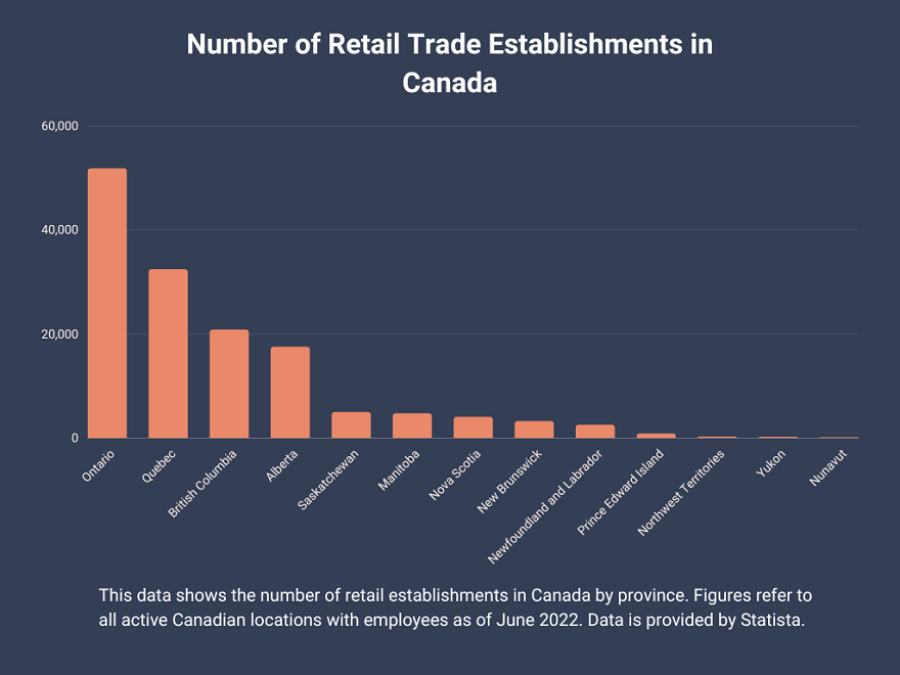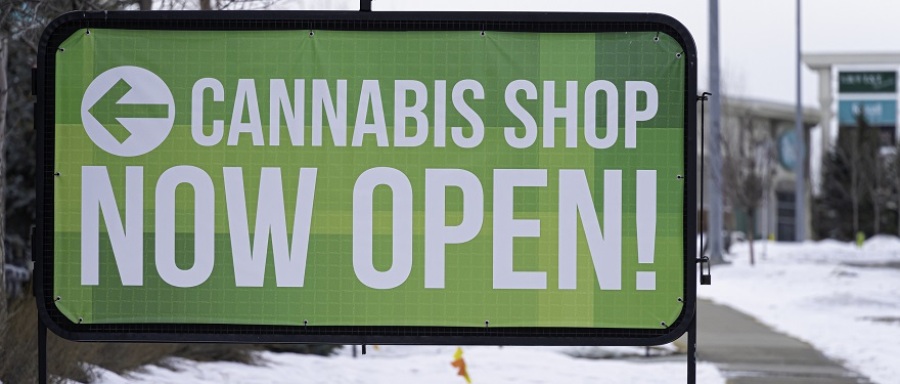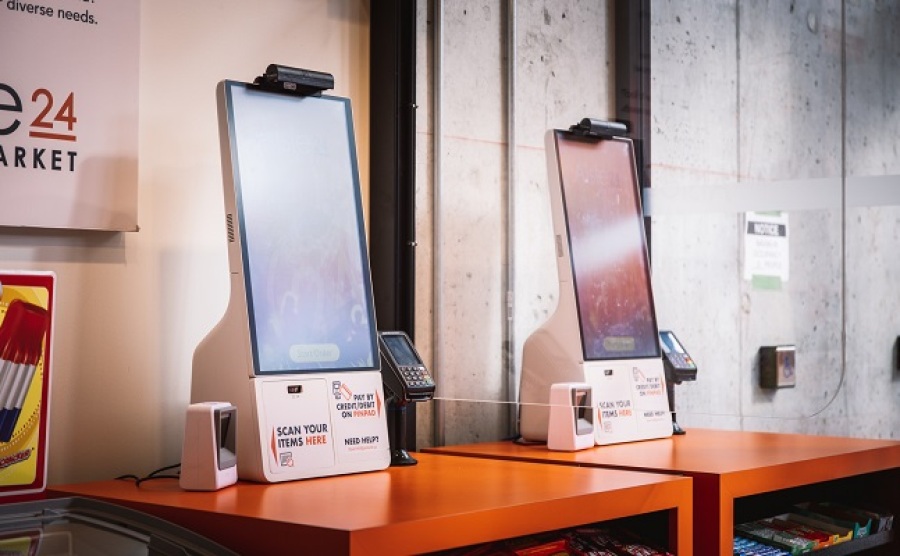🕒Estimated Reading Time: ~7 minutes

The formal definition of retailers from the Business Development Bank of Canada (BDC) is “a business that finds, buys and gathers products or services from multiple suppliers and sells them to consumers.” By that definition nearly anything can be considered a retail store, though most tend to primarily think of retail stores (and online outlets) in terms of clothing, consumer products and the like.
Because of the breadth of the general retail industry, there are a wide range of opportunities available in the retail franchise industry available to prospective franchisees. And these retail franchises are playing an increasingly vital role in the Canadian economy. As much as 45% of all sales in the Canadian retail sector are from franchise operations. Per IBISWorld, total retail sales in Canada amount to $585 billion.

Within franchising specifically, the following sectors have traditionally been included within the retail products and services category:
- Furniture and home furnishings stores
- Electronics and appliance stores
- Building material and garden equipment and supplies dealers
- Health and personal-care stores
- Clothing and general merchandise stores
- Florists and gift stores
- Consumer goods rentals
- Photographic services
- Book and music stores
In addition, selected food service providers have been included over the years within retail franchise industry reporting. They include areas such as:
- Food and beverage stores
- Convenience stores
- Food service contractors
- Caterers
- Retail bakeries
- Beer, wine, and liquor stores
- Gas stations with convenience stores
The vastness of options, understandably translates to strong interest. Based on a Canadian Franchise Association (CFA) survey of prospective franchise owners in Canada, the retail industry (23%) is the third-leading sector for those researching concepts and brands, only trailing food and services.
No Longer Emerging, Cannabis Finds Its Place in Canadian Retail Franchising
One segment of retail not mentioned above is cannabis, but it’s one that shouldn’t be left out.
The Canadian federal government legalized recreational cannabis use for adults in October 2018. The reasons cited were to protect the health and safety of Canadian cannabis consumers, curb illicit trade, and create a new source of economic growth for the nation.
And contribute to the economy it has. Research reports indicate that the cannabis production market size consisting of all companies licensed by Health Canada to cultivate, produce and sell products containing marijuana for medical and recreational consumption in Canada (not including accessories) is $13.3 billion. It’s expected to increase 10.5% in 2023.

As we close in on five years later, the industry is now widely accepted – and with that greater acceptance comes more franchise opportunities. From the sellers of strains themselves to retailers of items such as vaporizers, water pipes, grinders, dugouts, extractors, bowls, and other accessories, the franchise marketplace is filling in like all other established industries once did.
What do prospects look like for further market growth? If the following quote from Brian Demers, VP of Operations and Franchise Development at Quebec-based smoking accessories retailer Prohibition, is any indication, the untapped market has room to grow.
“Reports indicate that anywhere from 14 to 22 percent of adults admit to smoking cannabis, and more than 30 percent would try cannabis once legal, but we believe it will be closer to 60 percent,” Demers told the CFA in 2019. “It is important to note, this is the percentage of individuals whom felt comfortable confessing their consumption pre-legalization. We believe with cannabis being legal, a lot of individuals, especially professionals, will try cannabis.”
Beyond the potential for market growth, if entering this industry, franchising may provide a comparatively easier path for cannabis business owners as the franchisor can help franchisees avoid operational and regulatory pitfalls that they may not have been aware of on their own.
For instance, here is sample of the franchisee support provided by Unity Rd.:
- Vigilant Compliance Strategy: Regulatory procedures tailored to each location. Compliance officers available for consultation to walk through what needs to happen at every step.
- Comprehensive Finance Blueprint: The cash flow process of the franchisor’s finance team puts in place to compliantly handle all funds and makes accounting, audit preparation, and payroll “routine and straightforward for our partners.”
- Community Outreach: “Utilize our relationships and best practices to create an authentic presence in the community you operate in, making your existing relationships even stronger.”
“Joining a franchise system has a lot benefits. It’s an effective way to go,” says President and CEO of Spiritleaf Darren Bondar. “There’s a lot of big players in the industry, and while there will be some room in the sector for independent, boutique shops, I think there’s a lot of benefit to being partnered with somebody who’s got the financial strength, and knowledge in the industry.”
Technology Allowing for New Concepts to Thrive
Technology is advancing rapidly, and retail franchises are doing their best to keep up. Consumers want to be able to not only shop in-person when they desire, but also from the comfort of their own homes. Franchisors have found making easy-to-navigate online retail sites that are easily accessed by smartphones, tablets and computers is advantageous to company growth.
An example of this model is Instant Imprints. The promotional marketing and visual communications franchise offers customers its iStore program, in which the contracted franchisee creates a custom online store for the customer. The iStore program is in addition to the franchise’s standard model of providing services from a locally owned brick-and-mortar store location.
Canada is currently the 9th largest market for eCommerce in the world, per ecommerceDB. According to the International Trade Association, in 2022 eCommerce users in Canada numbered over 27 million, or an estimated 75% of the Canadian population. The association expected this number to grow to 77.6% in 2025.
However, the impact of technological advancement is not only confined to the growth of online retailing.

Take convenience store franchise Aisle 24, for example. Aisle 24 franchises feature a cashier-less, small footprint (300 to 600 sq. ft.) grocery market concept. The stores not only capitalize on technological advances, but also the boom in the urban Canadian residential property market, which has increased demand for a last-minute shopping place for residents.
“At present, we are seeing a huge influx of people wanting to start their own businesses and are opting for new innovative services that are future proof,” co-founder John Douang told the CFA. “As we grow and cement our position as a leader in technology-enabled convenience and grocery retail, our goals are to have a network of Aisle 24 Markets in every community in Canada and we’ve got our sights on U.S. and international markets.”
Initial Investment and Opening Costs for Retail Franchises
The amount necessary to open a franchise varies depending on the unique business system and execution requirements.
Our franchise profiles will present you with a basic range for the initial investment or minimum cash required to open a franchise. But when it comes to finding out the details of an initial investment, the Franchise Disclosure Document (FDD) is the best place to look. Franchisors offer itemized estimates in their FDD based upon their experience establishing, and in some cases operating, units. However, not all provinces require an FDD. Here is a list of those that do.
Keep in mind these estimates are just that, though—an estimate. Prospective franchisees should review the figures presented with a business advisor, taking into consideration their unique circumstances, before making the decision to enter into a franchise agreement.
Ongoing Costs for Retail Franchises
Don’t forget about the additional costs required for nearly all franchise businesses. This includes expenses such as royalty fees, marketing fees, software fees, training fees, and more.
The most common is the royalty fee. Royalty fees are assessed for the continued use of the franchisor’s trademarks and patented processes, along with certain types of operational support. In addition to regularly assessed fees, other fees are charged on an “as needed” basis such as audit fees, or costs for additional, non-mandatory, training.
It’s important to note that while many initial and ongoing costs are detailed in the FDD, there are some costs inherent to business ownership, like employee wages or utility costs, that aren’t.
--
There are plenty of retail franchise opportunities to explore here if you are interested in starting your own retail business.
Hottest Retail Franchises

Office Evolution
Office Evolution offers an extraordinary opportunity to take advantage of today’s changing business world by investing in a unique coworking space franchise in a multi-billion-dollar category.
















